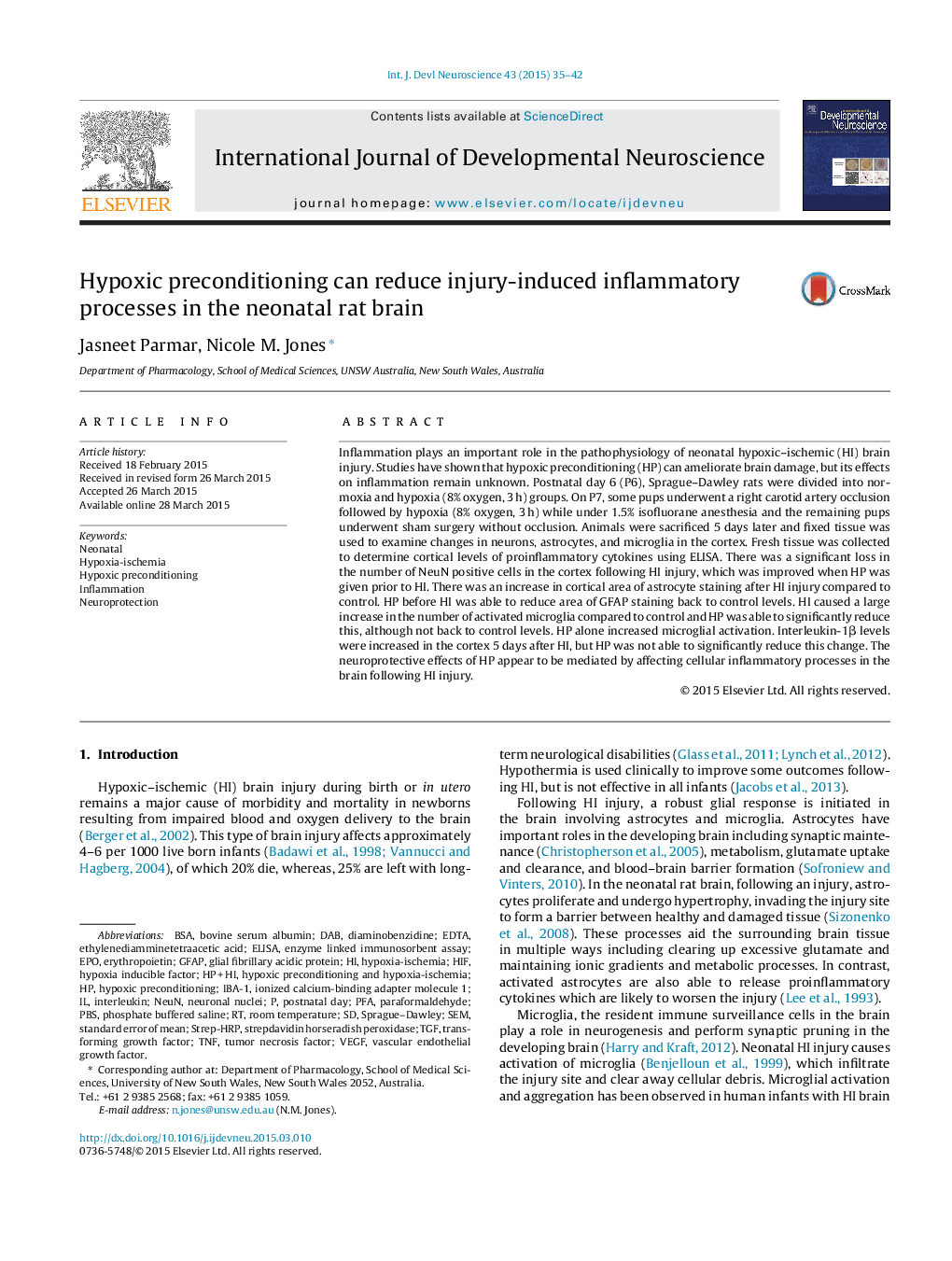| Article ID | Journal | Published Year | Pages | File Type |
|---|---|---|---|---|
| 2785711 | International Journal of Developmental Neuroscience | 2015 | 8 Pages |
•Hypoxic preconditioning (HP) is protective against hypoxic–ischemic (HI) injury in the newborn rat brain.•HP prior to HI reduces reactive astrocyte and the number of activated microglia following HI.•HP alone increases microglial activation.•HP prior to HI does not affect levels of inflammatory cytokines.
Inflammation plays an important role in the pathophysiology of neonatal hypoxic–ischemic (HI) brain injury. Studies have shown that hypoxic preconditioning (HP) can ameliorate brain damage, but its effects on inflammation remain unknown. Postnatal day 6 (P6), Sprague–Dawley rats were divided into normoxia and hypoxia (8% oxygen, 3 h) groups. On P7, some pups underwent a right carotid artery occlusion followed by hypoxia (8% oxygen, 3 h) while under 1.5% isofluorane anesthesia and the remaining pups underwent sham surgery without occlusion. Animals were sacrificed 5 days later and fixed tissue was used to examine changes in neurons, astrocytes, and microglia in the cortex. Fresh tissue was collected to determine cortical levels of proinflammatory cytokines using ELISA. There was a significant loss in the number of NeuN positive cells in the cortex following HI injury, which was improved when HP was given prior to HI. There was an increase in cortical area of astrocyte staining after HI injury compared to control. HP before HI was able to reduce area of GFAP staining back to control levels. HI caused a large increase in the number of activated microglia compared to control and HP was able to significantly reduce this, although not back to control levels. HP alone increased microglial activation. Interleukin-1β levels were increased in the cortex 5 days after HI, but HP was not able to significantly reduce this change. The neuroprotective effects of HP appear to be mediated by affecting cellular inflammatory processes in the brain following HI injury.
